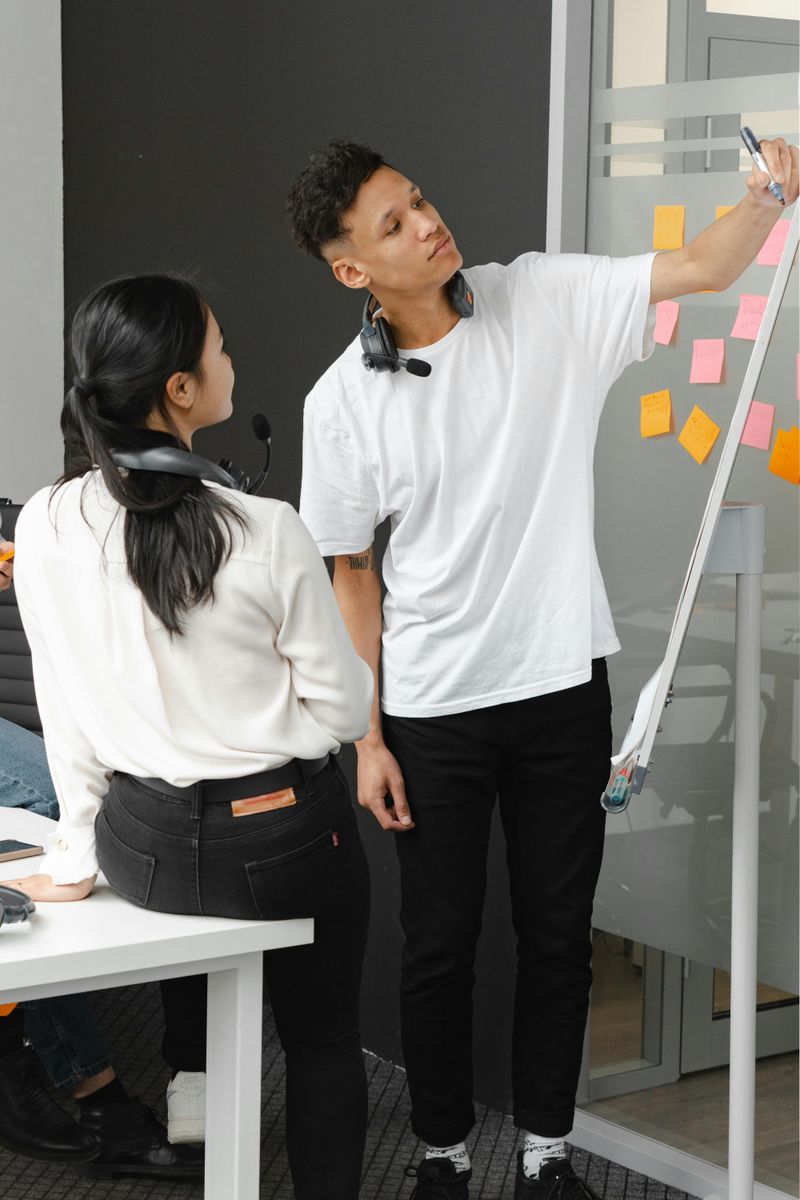10 Subtle Signs You’re Way More Creative Than You Realize

Creativity isn’t limited to painting masterpieces or writing novels—it reveals itself in everyday life. It’s in how you solve problems, connect ideas, or view the world from fresh angles. Many people possess creative traits without realizing it, often mistaking their imaginative thinking, curiosity, and unconventional perspectives for simple quirks rather than signs of a truly inventive mind at work.
1. You See Connections Where Others See Chaos

Your brain works like a puzzle master, spotting patterns and relationships that most people completely miss. While someone else might look at random information and feel confused, you naturally start linking ideas together in surprising ways.
This skill makes you excellent at solving complex problems because you don’t get stuck seeing things in just one way. You might connect a song lyric to a math concept, or notice how a nature pattern relates to city design.
These mental leaps aren’t weird—they’re signs of a creative mind at work. Your ability to find order in randomness helps you generate original ideas that others simply can’t see.
2. You Thrive in Chaos

When everything around you falls apart, something strange happens—you come alive. Messy situations that stress others out somehow spark your best ideas and sharpest thinking.
Deadlines approaching? No problem. Plans changing last minute? You adapt quickly. This comfort with disorder means you’re not dependent on perfect conditions to do great work.
Many famous inventors and artists created their best work during chaotic times. Your brain sees confusion as a playground rather than a threat, turning uncertainty into fuel for innovation. While others freeze up when things get unpredictable, you start experimenting and finding creative solutions nobody else considered.
3. You’re Not Afraid of Being Alone

Solitude doesn’t scare you—it energizes your imagination. While many people need constant company to feel comfortable, you actually crave time by yourself to think, explore ideas, and recharge your creative batteries.
During quiet moments alone, your mind wanders freely without interruption. You process experiences more deeply, imagine wild possibilities, and develop thoughts that get drowned out in noisy social settings.
Some of history’s greatest thinkers valued solitude for this exact reason. Your comfort with being alone isn’t antisocial; it’s a creative necessity that helps you tap into your inner world and bring original ideas to life.
4. You’re Constantly Questioning

Your mind is always buzzing with curiosity—questions like “Why does it work that way?” or “What if we tried something different?” constantly arise because you refuse to accept surface-level explanations.
While others nod and move on, you dig deeper, challenging assumptions and exploring the reasoning behind everything. This curiosity drives you to understand how things really work, not just how they appear.
Teachers might have called you argumentative, but you’re actually thinking critically. Your questioning nature helps you discover flaws in existing systems and imagine better alternatives. Creative breakthroughs happen when someone asks the right question, and you’re always asking.
5. You’re Observant

Ever notice how light changes throughout the day, or catch tiny expressions that flash across someone’s face? Your attention to detail goes far beyond what most people register in their daily lives.
You spot the small stuff—color combinations in nature, quirky habits people have, sounds others tune out completely. These observations become raw material for creative projects and unique insights.
Writers, designers, and innovators all share this trait. Your observant nature helps you understand the world more richly and notice opportunities or problems that remain invisible to less attentive minds. Details matter, and you naturally collect them.
6. You Embrace Failure

Did you know? Thomas Edison failed thousands of times before inventing the light bulb, calling each attempt a learning experience rather than a defeat.
When you mess up, you don’t spiral into self-doubt or give up entirely. Instead, you examine what went wrong, extract useful lessons, and try again with new knowledge. Mistakes feel like stepping stones rather than roadblocks.
This resilient mindset separates creative thinkers from everyone else. You understand that innovation requires experimentation, and experimentation means some attempts won’t work. Your willingness to fail forward keeps you moving toward breakthrough ideas while others stay stuck in fear.
7. You Feel Deeply

Music can move you to tears. Stories stick with you for days. Your emotional sensitivity isn’t weakness—it’s a creative superpower that helps you understand human experiences on a profound level.
This deep feeling allows you to empathize with others authentically, creating work that resonates emotionally rather than just intellectually. You tap into universal feelings and express them in ways that connect with people’s hearts.
Artists throughout history have channeled intense emotions into timeless creations. Your ability to feel deeply provides authentic material that makes creative work meaningful and memorable rather than shallow or forgettable.
8. You Daydream or Drift Mentally

Your mind wanders during boring meetings or long commutes, traveling to imaginary scenarios and abstract possibilities. Rather than staying firmly planted in the present moment, you mentally explore alternate realities and creative what-ifs.
These mental drifts aren’t distractions—they’re your brain’s way of making connections and generating original thoughts. Some of your best ideas probably arrived during these wandering moments.
Research shows that daydreaming activates the same brain networks involved in creative problem-solving. When your mind drifts, it’s actually working hard behind the scenes, mixing memories and ideas into innovative combinations you couldn’t force consciously.
9. You Resist Conformity

Following the crowd feels uncomfortable, like wearing clothes that don’t fit right. You naturally question traditions and challenge conventional thinking, preferring to carve your own path instead of walking well-worn trails.
This independent streak means you’re willing to risk looking different or unconventional if it means staying true to your vision. Rules feel like suggestions rather than absolute commands.
History’s most creative minds were nonconformists who refused to accept limitations. Your resistance to conformity pushes boundaries and opens up possibilities that rule-followers never discover. Innovation requires someone brave enough to think differently, and that’s exactly what you do.
10. You’re Open to Ambiguity

Uncertainty doesn’t panic you the way it bothers other people. When situations remain unclear or outcomes stay unpredictable, you feel surprisingly comfortable letting things unfold without forcing immediate answers.
This tolerance for ambiguity allows ideas to develop naturally rather than rushing to premature conclusions. You give concepts space to evolve and transform, trusting the creative process even when the destination isn’t visible yet.
Creative work lives in gray areas between questions and answers. Your ability to sit with uncertainty means you don’t settle for the first obvious solution, instead allowing better, more innovative possibilities to emerge over time.

Comments
Loading…